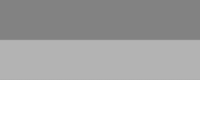securPharm: Falsified Medicines Directive will change the pharmaceutical market
23.07.2015
Frankfurt am Main, July 23, 2015– About 400 representatives of pharmaceutical companies, wholesalers, pharmacists and their national and international associations participated in the 2nd securPharm European Conference on the Falsified Medicines Directive. securPharm had invited them to this meeting to inform them regarding the implementation status of the Falsified Medicines Directive in Germany and on the status of the European legislative process. Apart from the securPharm experts, speakers included practitioners from the pharmaceutical industry, wholesalers and pharmacies as well as the representatives in charge from the EU Commission and the German Federal Ministry of Health.
Currently, the stakeholders of the pharmaceutical supply chain are waiting for the delegated act, which was announced for this year and which will specify the technical and organisational requirements for the implementation of the European Directive 2011/62/EU protecting patients from falsified medicines. Following publication, there will be a three-year implementation period until the provisions of the Directive become legally effective in all of Europe. However, one thing is already clear right now: This is one of the largest infrastructure projects in the pharmaceutical supply chain. In Germany alone, it affects about 500 pharmaceutical companies, approximately 20,000 pharmacies and additionally hospital pharmacies, and all pharmaceutical wholesalers. About 700 million packages of prescription drugs per year will have to be printed with a so-called Data Matrix Code that includes an individual serial number, thereby rendering each package unique.
The experts agreed that the requirements of the Falsified Medicines Directive represents a challenge for all participants in the pharmaceutical supply chain. Dr. Reinhard Hoferichter, spokesman of the Board of securPharm: “The manufacturers must view the conversion of their products to serialisation as a cross-organisational change project that affects not just pharmaceutical production processes but also the areas of IT, quality assurance and distribution.” Among experts, the serial number management is considered the most sensitive aspect of the process, since the authenticity verification of pharmaceuticals at the pharmacy depends on it.
securPharm started the implementation of the Falsified Medicines Directive as early as 2011 and has been testing it in practice since 2013. Hoferichter: “Companies can benefit from this lead-time advantage by connecting with securPharm now in order to practice their internal processes and to systematically identify and eliminate error sources.” The great complexity of processes requires the planning of sufficient resources for implementation. Almost all production lines must be converted to include the new security features.


